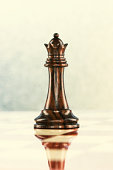Postscript: Last Fresh Hell Family Story

I began to reply to Stoic's brief comment on my last post but it turned into its own offering.
Stoic is correct; my last post did burn quite a bit coming out as opposed to my more light-hearted writing.
I think my father's illness and death was made more painful and confusing by definite walls deliberately erected whose purpose was to somehow shield us kids from the truth about our father's impending death but also shield us from the details of this very distasteful illness which simply wasn't discussed in society, at all. For my younger readers this may seem ridiculous and barbaric itself, but believe me when I write that it genuinely worked that way. At the time there were few "grief counselors" out there who specialized in this sort of thing, and of course nothing of the sort in the very rural Utah town in which we lived.
In addition to the societal constrictions and our geographical isolation, I'm sure much of this wall-erecting was due to the difficulty my well-meaning but emotionally distant mother has in expressing difficult feelings. Her favorite method of dealing with conflict, in icy Anglo-Saxon tradition, is to sweep it under the rug and pretend it doesn't exist. Hence, she was tasked quite heavily to constantly skirt the Daddy-shaped lump in the carpet. The fact that she succeeded so well and for so long is a testament to her continuing pathology.
Tangentially, it is common for divorced parents to wage subtle emotional battles, consciously or not, to determine the allegiance of their children. In a very real way, the threat presented by my father's lifestyle, so very different from my mother's, seemed hastily dismantled by his death. Which should have made my mother much more secure but which backfired on her dreadfully in later years, when 3 out her 4 children turned their back on her philosophy of life.
When Daddy died her distance from her feelings made it difficult if not impossible for me or my siblings to express our own sadness, confusion, fears, resentment, or abandonment.
We traveled to Denver to attend his memorial service (he was sensibly cremated) on my birthday, and were back at home by the time we had to go back to school. After the winter recess, when our friends asked what we had done during our holiday, I know we all made up a story or merely shrugged and reported nothing. No one outside our family knew what had happened, and I strongly believe we weren't convinced it would make a difference if anyone did know.
As I recall those few years following I despair for my younger self who performed so many silent rituals of grief that went nowhere, accomplished nothing, and were essentially useless. At the time it seemed natural to shroud myself in sorrow, draw swords against the unfair play of cosmos and thus emerge a fairly competent teenage fatalist.
I spent many years steeped in deepest denial - I knew friends and lovers for 10 years or more who had no idea my father had died at all, let alone when I was 13. It was only as I aged that I learned, painfully I might add, that to express the sadness and disappointment I felt about my father's death was perfectly allright - it was okay to feel, even as an adult, cheated of the chances which Fate had carted away from me with nary a backward glance.
Even now, at the 31st anniversary of his death, I weep. I have now outlived my father by nearly 10 years, and lately my sadness feels more profound, especially when I think of all he missed, all he would have wanted to do and know, and all he would have liked to have seen; he has two grandchildren who only have the very vaguest idea of him. Eventually all of us who knew him (even I, who barely knew him) will be gone and inevitably no memories of him will remain.
Because fatalism comes naturally now, I suspect that's the fate of us all.

1 Comments:
Well, it wasn't so much a wound kept open as my belief after reflection that my earlier post needed some additions and/or tweaking.
I don't cast blame on any of the varied cast of adult characters in this story; it's irrelevant and pointless to do so, even though as an adult I can certainly pinpoint where I as a young person was badly served by my elders.
I guess my point, if I have one, is that the circumstances in which I found myself as a quite naive teenager proved to be a fertile ground for thoroughly fatalistic worldview - imagine that clash, if you will.
I've long considered the healing process to be just that - a process. Truths, palatable or not, that I would have rejected 10 years ago make perfect sense now; falsehoods I clung to in the past seem completely untenable in my present. Thus we go (and thanks for the ever present Marcus A!)
Post a Comment
<< Home